We may earn revenue from the products available on this page and participate in affiliate programs. Learn More ›
It’s a stormy night, the wind howling outside, and suddenly, your home plunges into darkness. You find yourself fumbling for a single flashlight somewhere in your home, all the while hoping it actually has working batteries. It’s a situation we’ve all found ourselves in, but it’s one that can be avoided easily with a little preparedness.
Relying on just one source of light isn’t going to cut it the next time there’s a major storm or issues with the power grid. Get ready for the next blackout by ensuring you have multiple light sources available. These can range from traditional methods like candles to more innovative options, ensuring you’re never left in the dark no matter the circumstances.
1. Flashlights
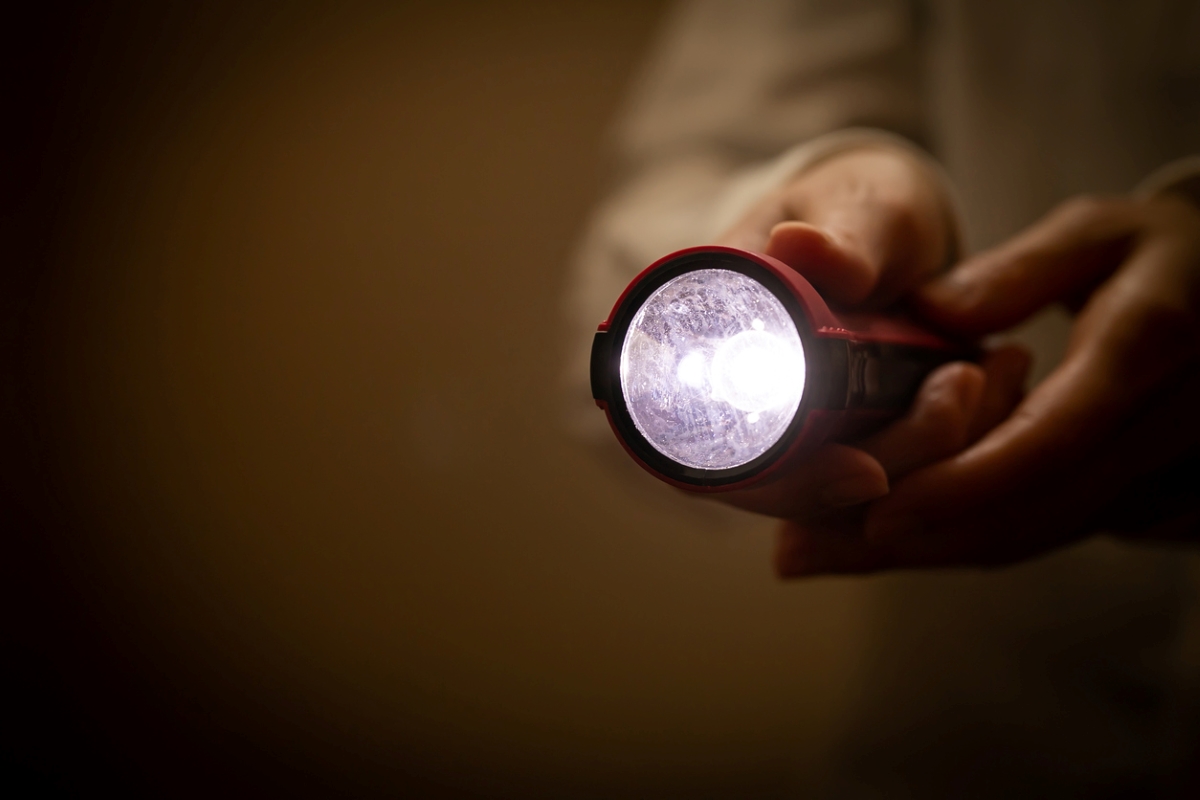
Flashlights are the top choice during power outages for good reason. They’re portable and provide a directed beam of light, an essential feature when navigating around your home or looking for items during an outage. Modern flashlights like the Streamlight 88040 ProTac HL can be incredibly bright and are energy-efficient. Plus, they can run for long periods of time without a battery change. Still, many do require batteries and if those batteries corrode or drain over time, a flashlight won’t be very helpful during an emergency.
RELATED: 16 Problems a Power Outage Can Cause at Home
2. Candles
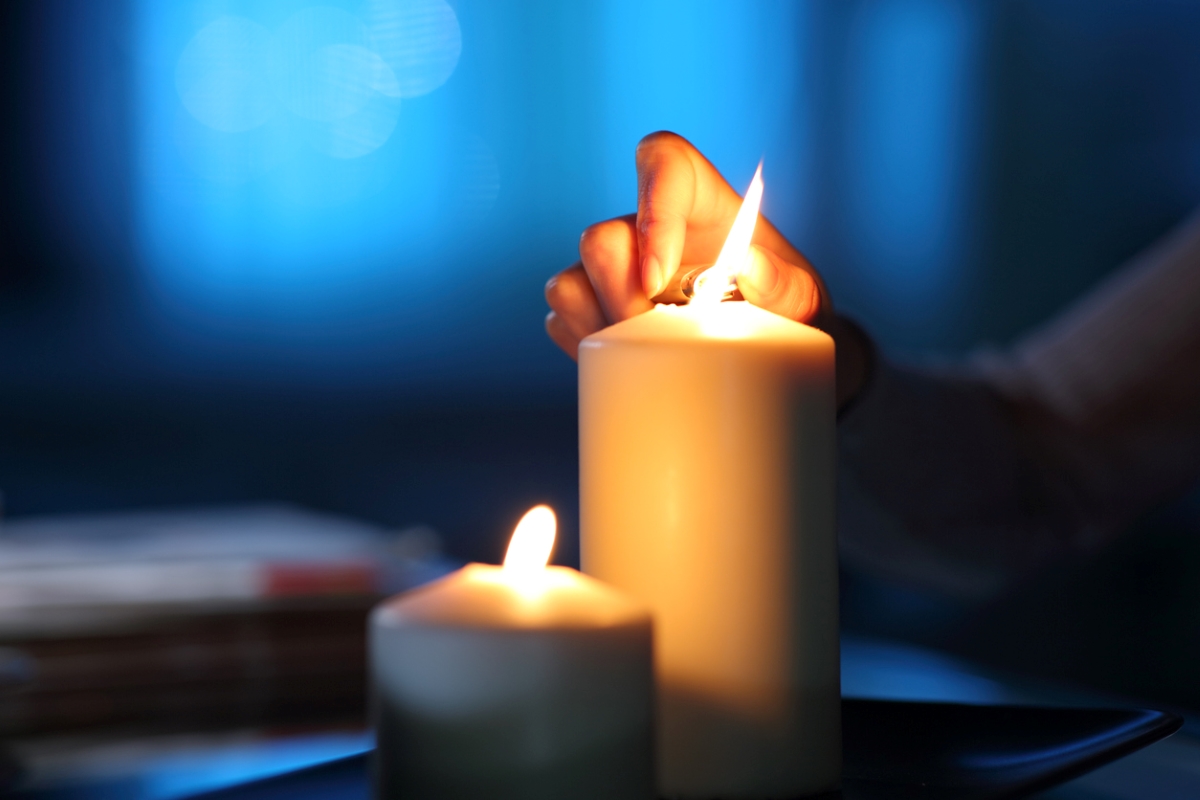
Candles have been a trusted light source for centuries, emitting a warm glow that creates a pleasant ambiance. They’re cost-effective and easy to find from retailers in person and online. While using candles in an emergency is a time-honored tradition, there are some drawbacks. Some candles burn quickly, and they need to be replaced once they’ve been used. They also pose a significant fire hazard and should never be left unattended. Not to mention, the area that candles illuminate is limited and it takes multiple candles to light up most rooms. These pillar candles from Stonebriar are affordable options to have on hand for a power outage.
3. LED Camping Lanterns
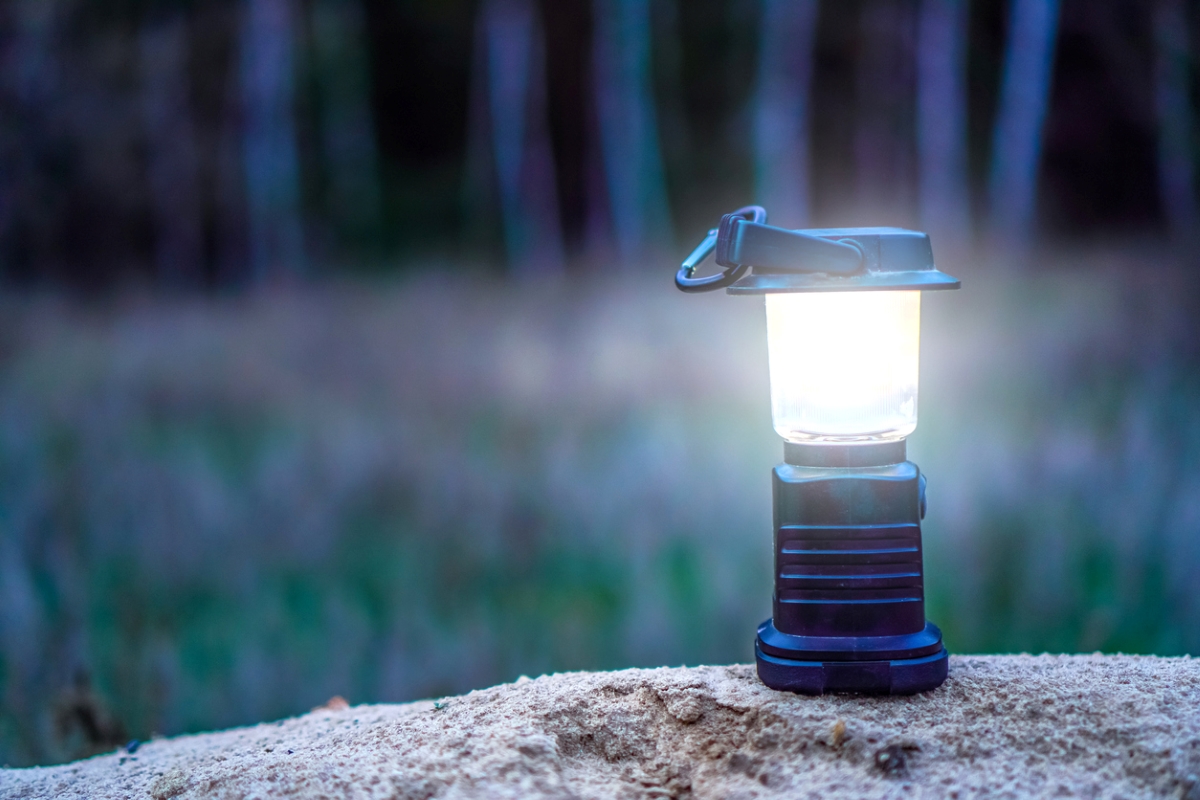
LED camping lanterns might be designed for outdoor enthusiasts but they’re also incredibly handy during an at-home power outage. They provide a 360-degree spread of light, which will illuminate large spaces. They’re portable and can be carried from room to room as needed. Many modern models, like the Lepro LE Super Bright LED Camping Lantern, have adjustable brightness settings and other features that make them more useful. Like many flashlights, however, LED camping lanterns depend on batteries or feature internal batteries that need to be charged ahead of time using a wall outlet.
4. Glow Sticks
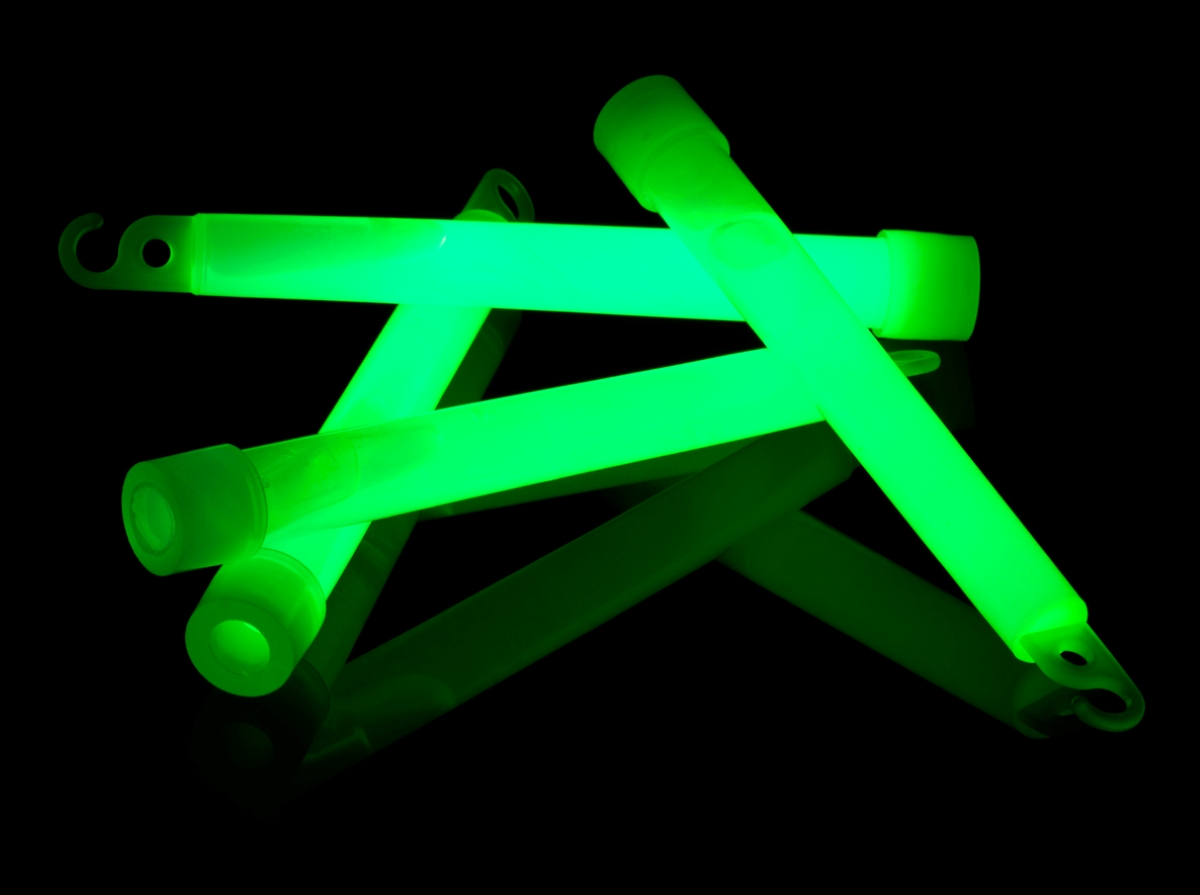
Want to make a power outage feel like a fun adventure for your kids? Consider stocking up on some glow sticks to use during an emergency. They’re easily activated by cracking in half and provide light instantly without the need for batteries or electricity. Younger children can wear glow sticks on their wrists or necks as an alternative to holding a flashlight. Beyond the typical party glow sticks that you might have seen, tactical glow sticks designed for survival situations also are on the market.
While glow sticks are convenient, they can be used only once and last for just a few hours. Their ability to illuminate is also lower than many other options, so while they can be a good addition to an emergency kit, they need to be paired with other light sources.
5. Kerosene/Oil Lanterns
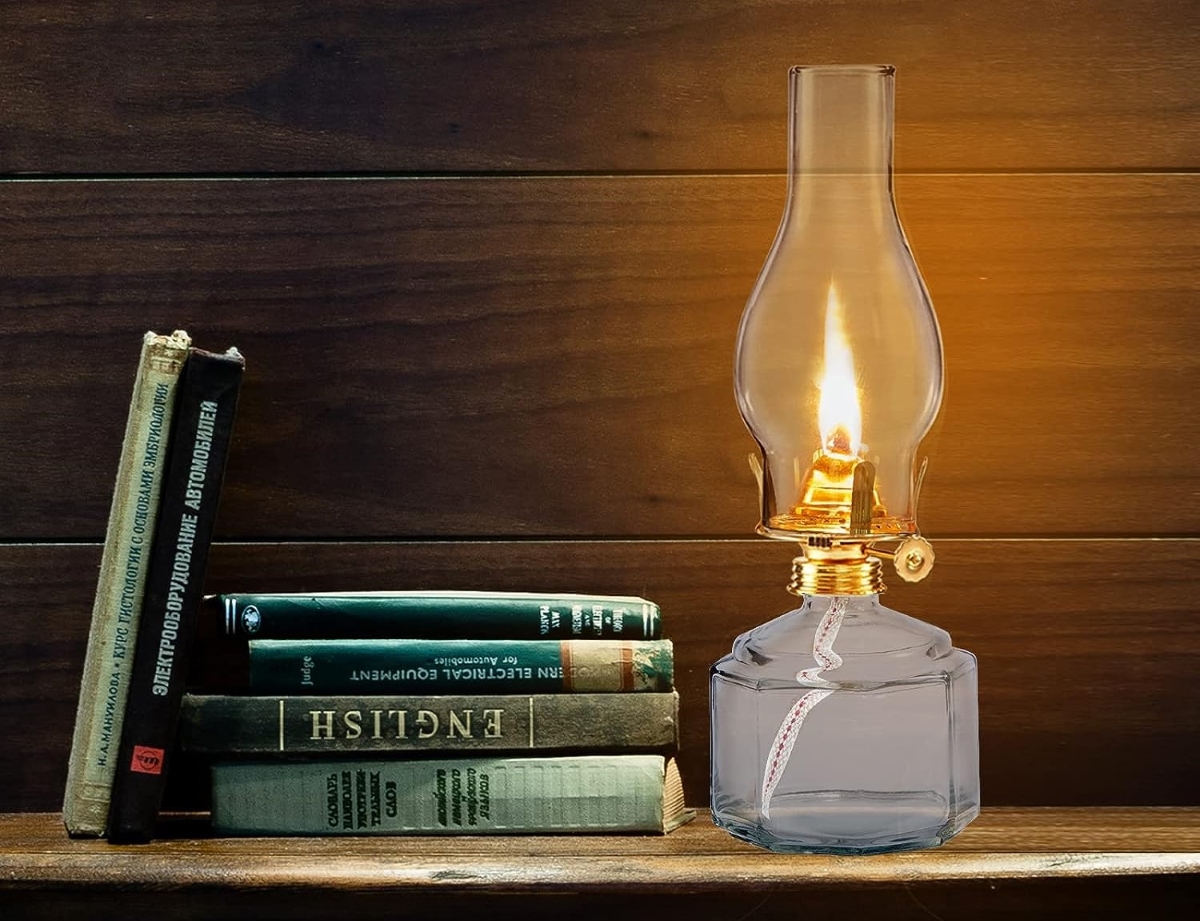
Kerosene or oil lanterns were once the primary source of evening light in most households. They feature a soft glow akin to candles and make for a comforting ambiance. Since they don’t require electricity, they’re a great choice for longer blackouts, but they do require a steady supply of fuel. Like candles, kerosene lanterns pose a fire risk since they feature an open flame. Due to the risk of carbon monoxide production, it’s best to use the lanterns in well-ventilated spaces. They also produce an odor that can linger even when they’re no longer in use.
RELATED: 15 Things You Should Never Do When the Power Goes Out
6. Battery-Operated Lights
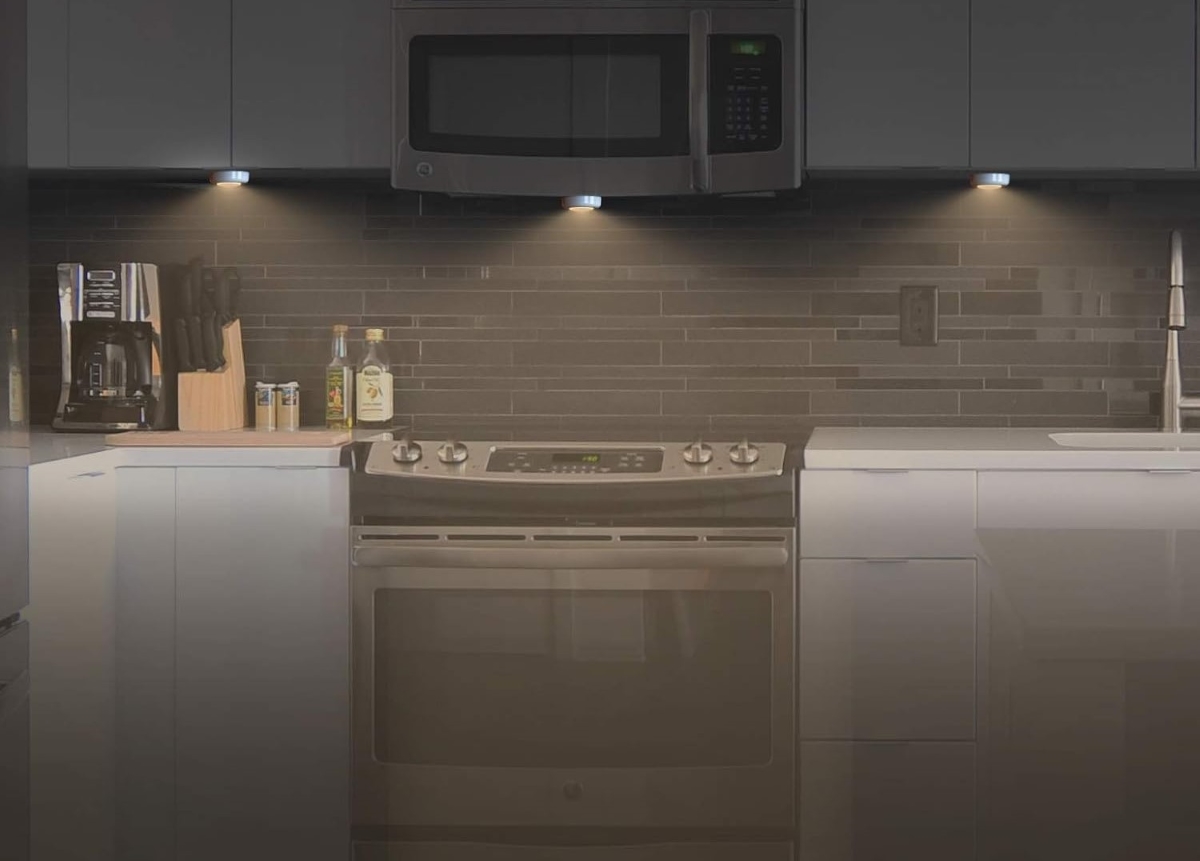
Battery-operated lights are innovative and convenient, providing the ability to light up corners, hallways, and stairwells, or serve as task lighting during a power outage. They’re small and portable but don’t need to be held like a flashlight. Tap lights in particular are easy to use and make a great addition to children’s rooms. Unfortunately, however, they rely on batteries and their battery life varies depending on the model, so they will need regular checks to prepare for emergency use.
7. Solar Lighting
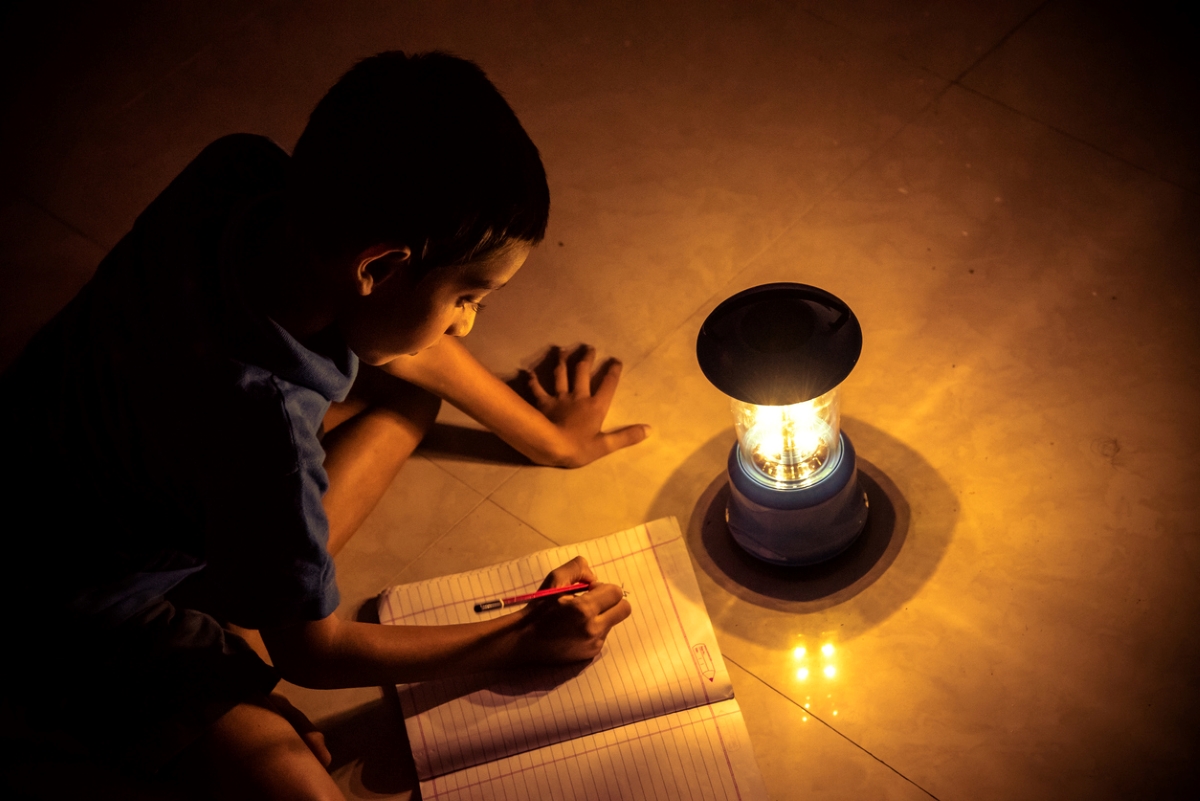
Those looking for the most eco-friendly and sustainable option for a blackout should consider solar lighting. This style of lighting harvests sunlight during the day and stores energy for when it’s needed. There are many different styles of solar lighting available, though solar lanterns are a great choice for power outages. Essentially, however, they need to be charged ahead of time and can only be recharged during the daytime when it’s bright and sunny. Some models like the LuminAid PackLite Titan 2-in-1 offer impressive performance, providing both illumination and the ability to charge mobile devices.
8. Step Lighting
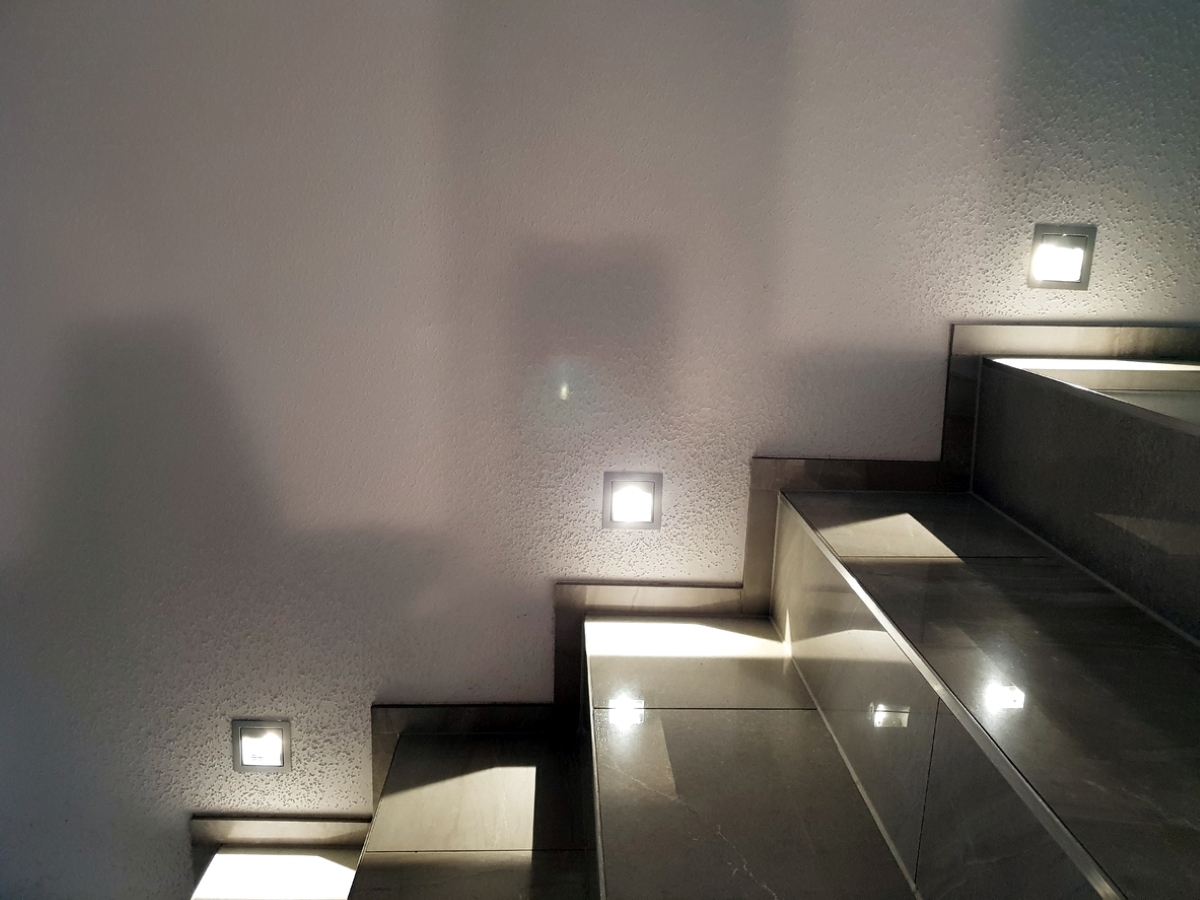
Battery-powered step lighting, also known as stair lighting, can be integrated into your home’s electrical infrastructure and can play a pivotal role during power outages. They are permanently installed in key areas and typically have a discreet design while still helping to reduce trips and falls when standard lighting fails. Installation can be complicated, but it’s a worthy investment for those living in areas that experience frequent blackouts. To keep things simple, look for stick-on lights, like these motion-sensor lights by Innofox. It’s important to note that over time, the lights’ battery backups might degrade, necessitating periodic checks to guarantee their functionality during blackouts.
9. Portable Generators
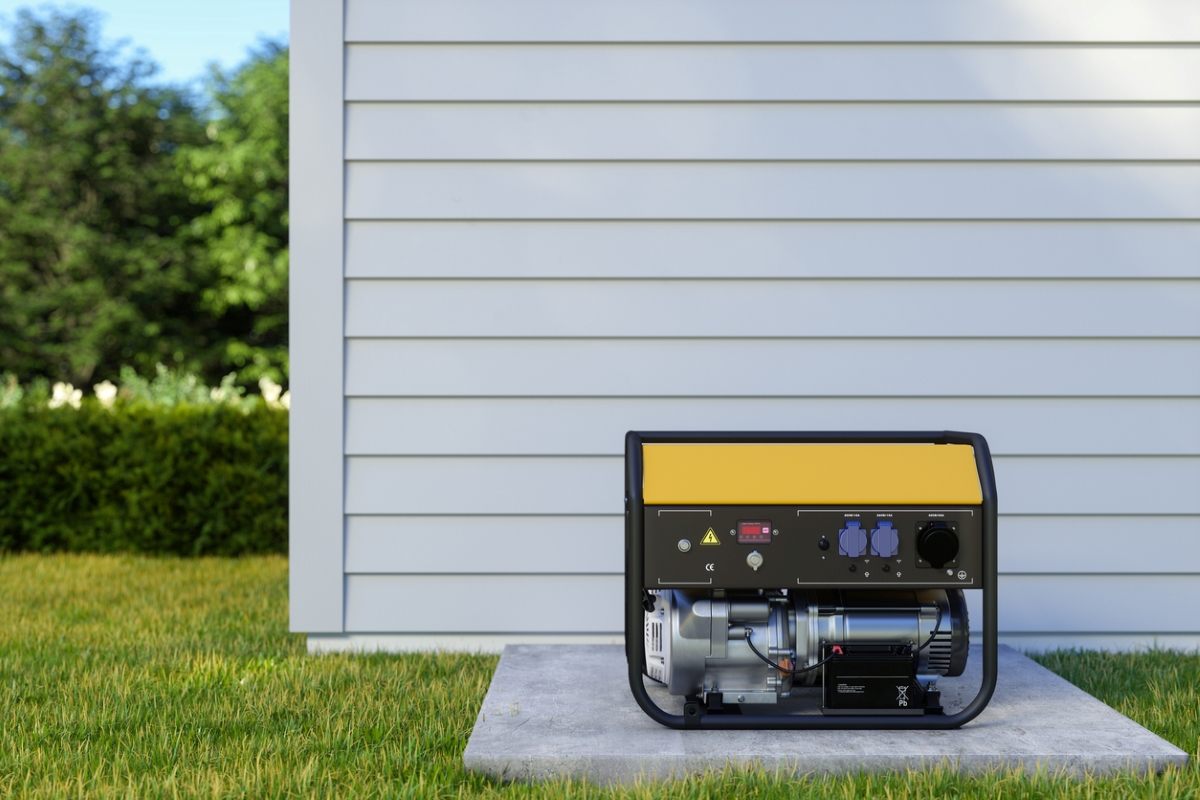
While portable generators don’t provide light themselves, they can be used to power up a wide variety of devices, making them indispensable during a long power outage. Most have multiple outlets, letting you charge lanterns and other light sources while simultaneously powering up your phone. Portable generators come with a significant cost but are worth the investment when an emergency arises. The Champion Power Equipment 3,800-Watt Portable Generator is Bob Vila’s top pick in our researched guide to the best generators because it runs for as long as 14 hours on a single tank of gas.
RELATED: Important Things to Know About Food Safety Before, During, and After a Power Outage
10. Emergency Light Bulbs
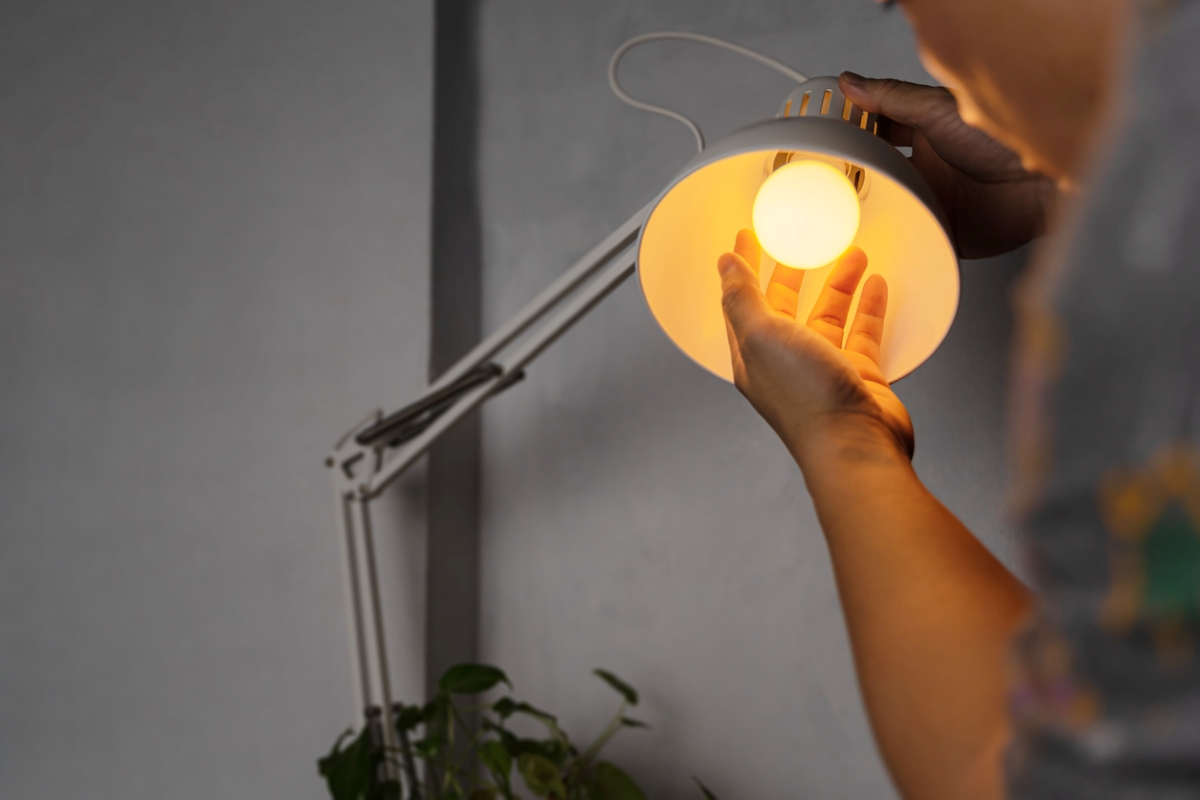
Emergency light bulbs like the JackonLux Rechargeable Emergency LED Bulbs, are ingenious hybrid products that function as standard light bulbs and seamlessly integrate into your light fixtures. Their unique selling point is that they also have built-in batteries that charge continuously during normal operation. If the power goes out, those batteries kick in and provide several hours of illumination. They come with a higher price tag than standard light bulbs, and each model varies in terms of the length of time that a charge lasts.


